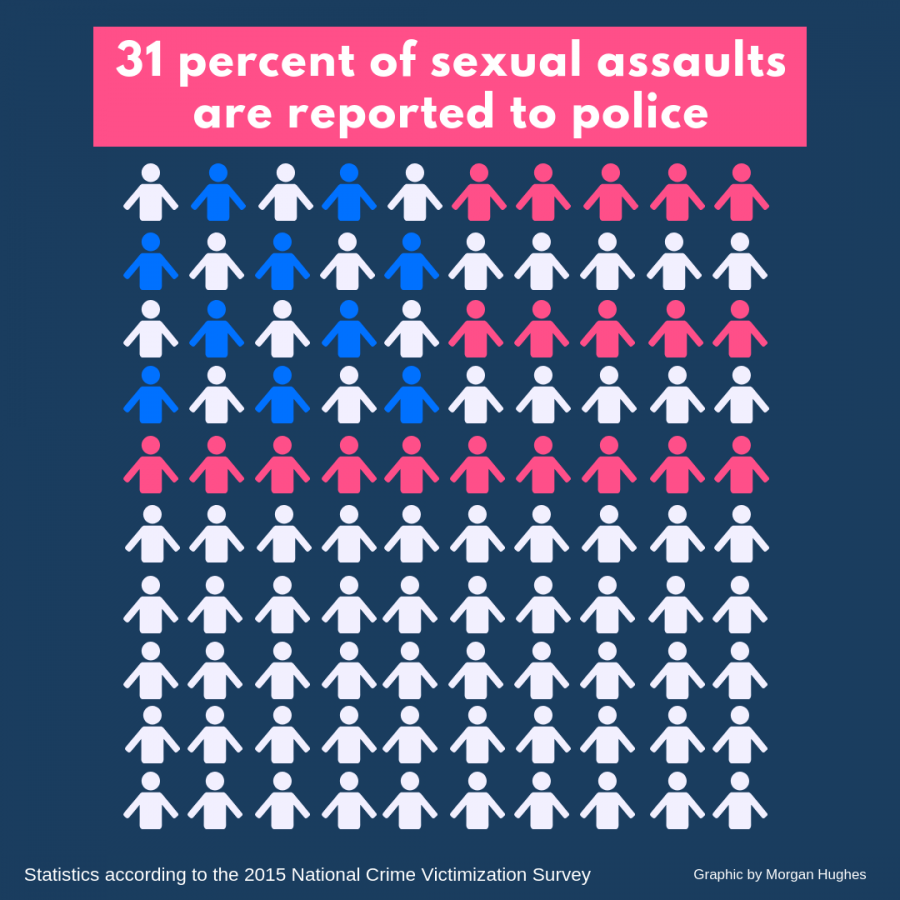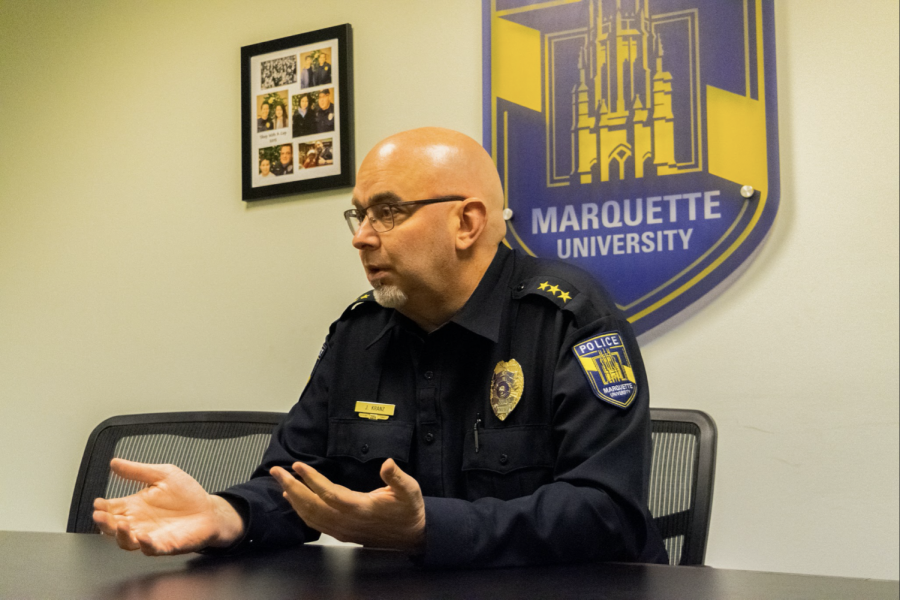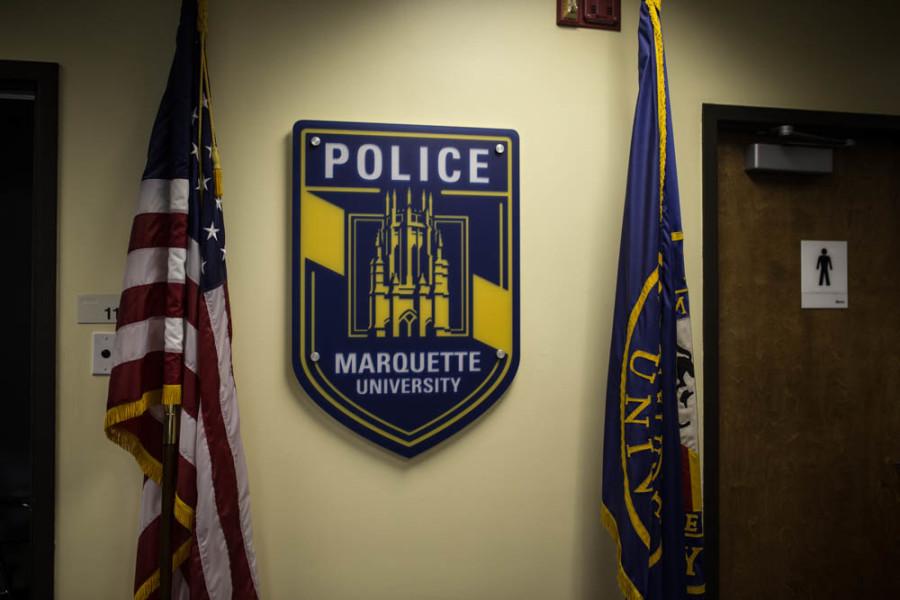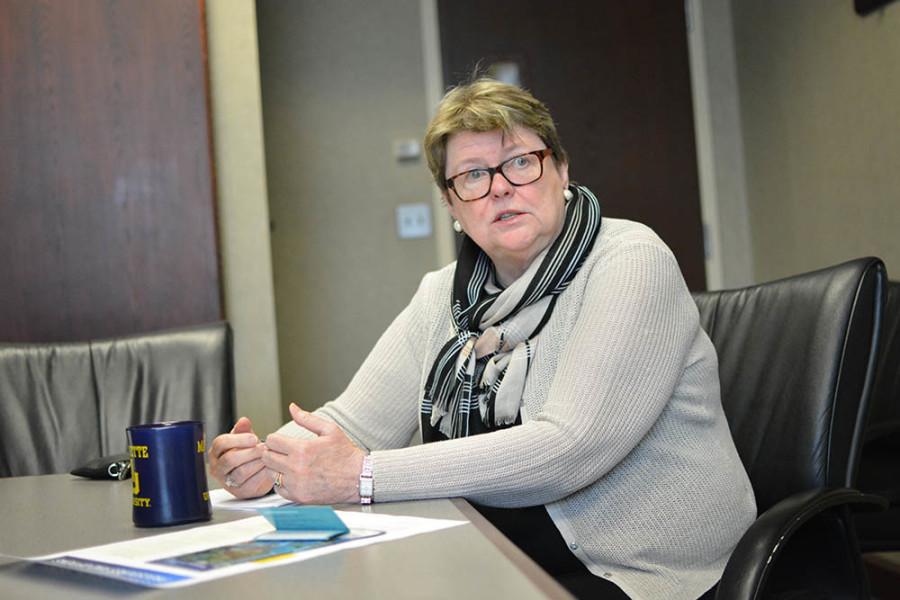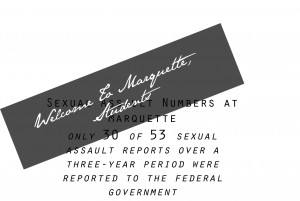
An unfortunate facet of the university environment is the prevalence of sexual assault and rape. As this affects students across the country, in public and private institutions with or without religious affiliation, Marquette is not immune to the problems such incidents present.
Marquette does a comparably good job handling the reality of assault on campus, promoting awareness and the ongoing conversation about how best to prevent assault and support those victimized. Paying mind to the positives, there is still room for the university to expand its transparency on the subject.
Rather than offering a snapshot on sexual assault, Marquette should offer a bigger picture to fight against public stigma. To truly deconstruct the climate conducive to high numbers of reported assaults and even more unreported assaults on campus, there needs to be a full understanding of what is going on.
While Marquette may be lauded for its active reporting when compared to other schools, it seems to only be following the rules rather than going beyond to promote greater change. The university may be following the Clery Act’s mandates, but this may not be the best way of accurately representing campus and tackling the problem.
As noted in the first part of the Marquette Wire’s series on the reporting of sexual assault at Marquette, only 30 of 53 sexual assault reports over a three-year period were reported to the U.S. Department of Education in line with the Clery Act. All 53 were part of daily Department of Public Safety reports, yet some were left out because they were outside of the “patrol jurisdiction.”
These omissions may not seem like a major error to the federal government, yet it gives the impression Marquette is not being as forthcoming and proactive as it could be. Affiliates of the university could see this as an attempt to cover up what is really going on and as a result, hinder the university’s forward momentum.
DPS has since expanded the patrol limits to a one-mile radius of campus for reasons of keeping students and others safe. This type of expansion should also apply to how information is released to the general public. The real numbers that DPS reports should be public and not just distributed by student journalists.
Greater transparency and disclosure of information would be best for the overall public as well as those who experience sexual assault firsthand.
Much of the social stigma surrounding assault is based on acceptance of rape myths, which describe assault as necessarily violent, only happening between strangers and taking place in a dark alley. It is better for people to know more about the true reality to consider what is happening and how it can be dealt with. The public cannot accurately gauge improvements or setbacks if it is not given the full information and context. The university can take better strides to be more informative.
Social stigma also affects victims of sexual assault who may be scared of or against coming forward because they think theirs is an isolated incident or that nothing would come of telling the administration about their experiences. The university must address these concerns by offering acknowledgement and reassurance that what happened was real for them and is being seriously considered in the form of better publicizing the reality.
Marquette has made a commitment to facing the problem of sexual assault head on and must continue to follow through in every way possible. The university is taking great strides, but there are still many ways to pursue improvements for a more open and welcoming campus.


